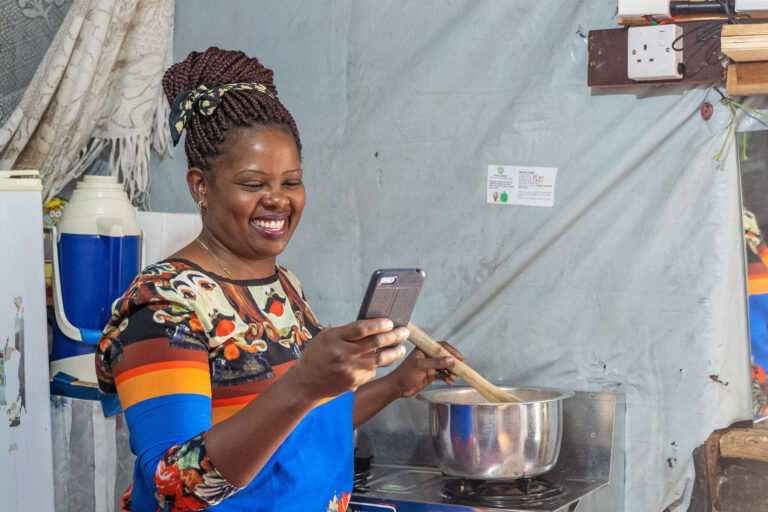Doubts over the emissions claims clean cooking projects have made over the years may have eroded the credibility of carbon credits issued in their name. This month the Clean Cooking & Climate Consortium (4C) has responded. Led by the Clean Cooking Alliance (CCA), 4C unveiled their draft of a new methodology for measuring emissions in clean cooking projects. This is the first that applies universally to all types of cooking transitions. The public is encouraged to provide feedback on the draft now through August 2, 2024.
See E4C’s Solutions Library to compare clean cooking technologies
“The world will not reach net-zero without addressing clean cooking access. And the cooking crisis — like climate change — will not be solved without carbon finance,” the Clean Cooking Alliance said in a statement. “For carbon markets to thrive, they must be based on trust, integrity, fairness, and transparency. There is no place for fraud, corruption, or other wrongdoing.”
Why the need for a new methodology?
Journalists and researchers have questioned the veracity of carbon reduction claims for cooking projects in recent years. In January an evaluation of five cookstove carbon emissions measuring methodologies suggested that they over-credited carbon emissions reductions 9.2 times, according to Dr. Annelise Gill-Wiehl at the University of California, Berkeley, and colleagues who published in Nature Sustainability. Even Gold Standard’s metered methodology that monitors fuel usage over-credited 1.5 times, the researchers write.
What sets this methodology apart?
For the last year and a half, 4C has worked with 250 stakeholders to develop their methodology. Their goal is to set the standard for measuring emissions reductions in cooking projects under Article 6.2 and Article 6.4 of the Paris Climate Agreement, as well as within the Voluntary Carbon Market. It integrates scientific insight, measurement and monitoring techniques, and stringent safeguards for situations where direct measurement is impractical.
This methodology applies to both “metered” clean cooking projects, which continuously monitor fuel usage, and “non-metered” projects. For the latter, the methodology offers various approaches to determine emissions reductions, including combinations of surveys, sensors, and fuel consumption monitoring.
“By using this methodology, clean cooking carbon projects will generate the most realistic emission reduction estimates to date,” Elisa Derby at CCA said in a statement. “The 4C approach is designed to incentivize best practices, increase transparency around how emissions reductions are calculated, and make it easier to verify those emissions.”
Who is 4C?
4C is a coalition working to meet climate goals through improvements in cooking technologies. Alongside CCA, 4C includes the US Environmental Protection Agency, the UN Framework Convention on Climate Change secretariat, the Climate and Clean Air Coalition, Berkeley Air Monitoring Group, and the Stockholm Environment Institute.
Open for public comment
To contribute feedback on the methodology, stakeholders must submit a commenting form to CCA by August 2, 2024. The following links provide details:
- Draft CLEAR Methodology
- Commenting template,
- Explanation of Decisions document. An accompanying calculator tool will be also posted here in mid-July.
Coming soon: 4C will post a calculator tool and hold a webinar to answer questions about the CLEAR methodology. They ask readers to submit questions by July 12 at this link.
For updates please visit the 4C Methodology page.


This is an easy one. Any kind of carbon credit scheme is a scam. It’s all fake. Anyone pushing this is a grifter and it will do nothing to curb climate change/emissions. Expecting the “Green New Deal” to solve climate change is like expecting the Patriot Act to solve terrorism. Wise up, everybody!
“Stakeholder” is the new “sustainability,” “i.e., a buzzword that means nothing – worse than nothing, this language is harmful and retrograde.
It’s more complex than something you can write off as just a scam, though. For example, you probably know Evan Thomas at CU Boulder, and he wrote a nuanced take on the potential for credits to fund water access that I summarized here: https://www.engineeringforchange.org/news/can-carbon-credits-pay-for-global-water-security/